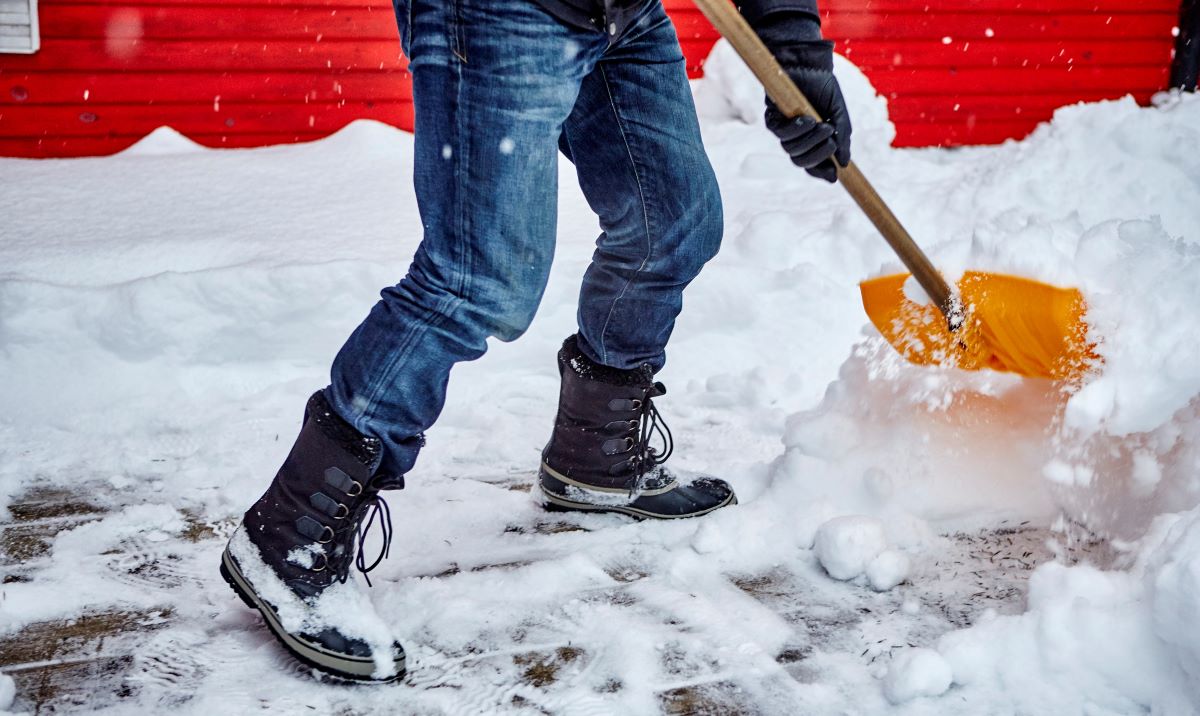Cold Weather Brings Heart Health Dangers
BJC HealthCare Cardiologist Urges Caution When Shoveling Snow
4 minutes
Clearing away snow and ice may be hazardous to your health, says Gus Theodos, MD, BJC Medical Group cardiologist at Missouri Baptist Medical Center. Shoveling snow causes thousands of injuries and about 100 deaths each year in the United States. Most of those deaths are due to heart attacks.
People with known heart or lung issues, orthopedic problems, or who are elderly or physically out of shape should be especially careful when it comes to strenuous work like shoveling snow, Dr. Theodos says.
The sudden exertion of shoveling snow can put a strain on the heart — as can the cold weather, which can cause blood vessels to constrict, potentially raising blood pressure along with the risk for heart attack.
“Shoveling snow is strenuous work,” Dr. Theodos says. “Even if it’s not a lot of snow, it’s a lot of work — more than many people are typically used to doing.”
In some cases, it might be safer to ask a friend for help or hire someone to do the shoveling. “Someone with heart disease that isn’t being treated, for example, probably should not attempt such strenuous work,” he says.
“And many people have undiagnosed heart disease. In that case, if they haven’t previously experienced symptoms, the exertion from the work and the constricted blood vessels from the cold may cause symptoms.”
(See “Know the signs of a heart attack,” below.)
Take precautions to safely shovel
Dr. Theodos says people with certain heart issues that have been addressed, and who exercise and are in good shape, can safely shovel snow, if they take certain precautions.
“We treat people with heart issues — and part of the reason for that treatment is so that people can live their lives how they want to and do the activities they enjoy doing,” he says. “Some people like to shovel snow. And if they’ve had a stent, for example, and they’re in good shape, then they can do activities like this.”
If you’re going to shovel, Dr. Theodos says, it's important to dress in warm layers and follow these tips:
- The exertion associated with shoveling snow — especially for those who aren’t used to it — also increases the risk of other injuries, like muscle strains. Since cold muscles are more likely to be injured, warm up before you shovel by stretching your back, legs, abdominals and upper-body muscles.
- Use an ergonomically designed shovel, if possible.
- Pay attention to where you're walking and be careful not to slip on an unseen patch of ice.
- Start by shoveling small, manageable areas, instead of heavy amounts of snow.
- Breathe normally — don’t hold your breath — when scooping, lifting or tossing the snow.
- Remember to stay hydrated to replace fluids lost by sweating.
- Pace yourself, take frequent breaks and take time to cool down when you're finished.
Know the signs of a heart attack
Awareness is key, says Dr. Theodos. Pay attention to how you’re feeling — and know the warning signs that can indicate a heart attack:
- Persistent chest, arm or jaw discomfort, pressure, tightness or burning
- Shortness of breath
- Pain that radiates to the jaw, arm or back
- Nausea, vomiting or cold sweats
- If you experience any of these, be sure to seek prompt medical attention by calling 911.
Dr. Theodos says it’s also important to watch for atypical signs of heart problems. “Not everyone gets chest pain, so it’s important to recognize symptoms that don’t seem heart-related — like discomfort in your neck or your back, fatigue, indigestion or heartburn, or nausea. These can be caused by your heart.”
And if you’re not feeling quite right but don’t know why, it’s better to be safe than sorry. “If it’s something you’ve never felt before, have it checked out,” he says. “We want our patients to be safe and we realize they may have to do things like shovel snow in their everyday lives. But if they have any symptoms that seem out of the ordinary, they should report that to their doctor. And if the symptoms don’t stop after they’ve stopped the activity, they might need to go the ER.”
Visit bjc.org/heart to understand your risk for heart disease and meet our team of heart specialists.
Recent News
Article
Breathe Easier: Tips for Improving Your Lung Health
Article
Chenitra Emergency Care
Article
Leading The Way in Lung Cancer Diagnosis
Article
Safety Tips for 4th of July Firework Fun
News
Memorial Hospital Among Nation's Top for Heart Attack Treatment
Article